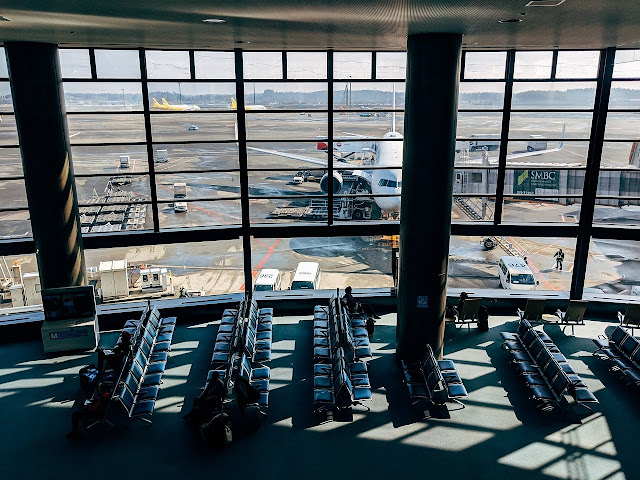When the real settling in begins...
The first month is gone.
The 'official' settling in tasks are done:
- Everyone's permission to stay has been granted.
- We've received our ID cards
- Kids are enrolled in school.
- Home internet is working
- Local SIM cards are now installed in our double-SIM phones.
When the real settling in begins
As I was walking home after sending the kids to school this morning, though, it occurred to me that this is where the real settling in begins.The kids have to get used to their new school and new routines and make new friends.
Kids, nanny, Husband, and I have to work out the commute timings, routes, and other daily arrangements.
I have to figure out and get into the rhythm of my morning routine, grocery shopping, my work, my chores.
And yes, there are still some official settling-in stuff to deal with. Sigh.
It's not easy
And this is the hard part, isn't it.Your initial vacation/holidays/honeymoon/adventurous feeling (not that I felt adventurous at all...) is gone, you're starting to hit that second stage where things start getting to you.
The little frustrations begin to add up and all you want is to feel settled in, at home, comfortable, and in the know.
It's the second stage in culture shock, the 'frustration stage.'
(If you haven't heard about the stages of culture shock, then check out: "The 4 Stages of Culture Shock.")
I know that it's a perfectly normal stage to go through, but I'd be happy to move on to the next one: adjustment!
Finding my 'scaffoldings'
Megha Jindal wrote (BAMBI News, May 2019) that what helps us find our local 'family' was not to look for friends, but to identify our local 'scaffoldings'.As Megha describes it, 'scaffoldings' are those organizations/structures that we affiliate ourselves with. For Megha in Bangkok, it was BAMBI and Empower Toastmasters Club. For me, it was first and foremost my choirs, and then BAMBI.
As long as I felt connected to those organizations, my sense of belonging didn't dissipate, even when those I felt closest to left Bangkok.
(The need to feel a part of specific groups/organizations is one reason why I, as an expat, find staying connected through Facebook addictive.)
It also ties to what Ruth Van Reken and Daniela Tomer spoke about at FIGT2019, that we need to identify those 'anchors' that help us feel we belong.
So it's time I started looking for my new scaffoldings, my new anchors.
Resources
 |
| Infographic by Communicaid |
- The 4 Stages of Culture Shock: A clear explanation of what the stages are. You can Google other ones, and you'll find some talk about 5 stages and others 3. No matter how you split it, the main message is the same.
- How to Manage Culture Shock (Expatica.com): A thorough (but understandable) break down of culture shock, what types of cultural differences there are (good to be aware of them), and strategies of dealing with culture shock.
- Overcoming Culture Shock (Deborah Swallow): Brief but to the point -- a list of actions you can take to overcome culture shock.
- 7 Tips to Take the Shock out of Culture Shock (Communicaid.com): An easy to understand overview of culture shock and some tips to work yourself through it. The infographic is from them.


Comments
Post a Comment